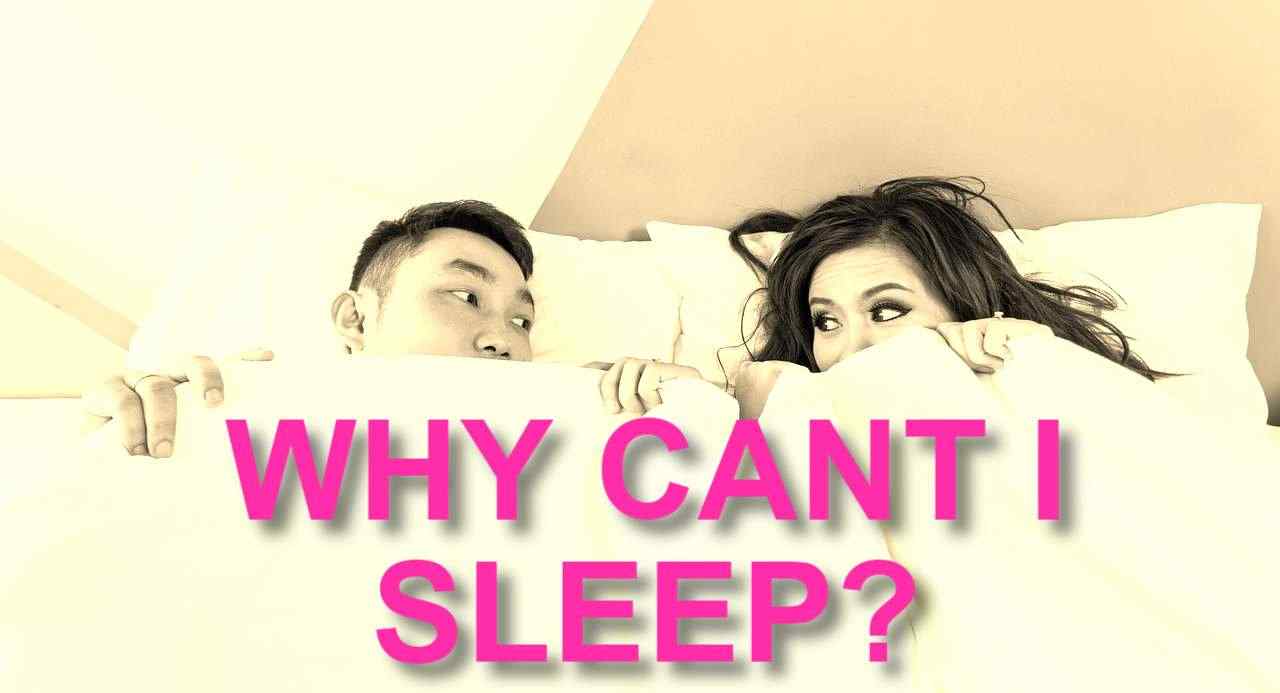Table of Contents
Intro Why Cant I Sleep At Night
Sleep is one of the most important aspects of our health and wellbeing. Unfortunately, many of us have experienced difficulty in getting a good night's rest. If you're someone who has been asking yourself “Why can't I sleep?”, this article is here to provide some answers. Here, we'll explore the various causes of insomnia and discuss potential solutions that can help you get the restful sleep you need.

Common Sleep Disorders
One of the most common reasons why people find it hard to sleep is stress. Stress can lead to overthinking, which keeps you awake all night. To minimize stress and anxiety before bedtime, try practicing meditation or deep breathing exercises to calm your mind.
Another reason why you may be struggling with sleep is because of poor sleeping habits. Drinking too much caffeine or alcohol before bedtime can disrupt your sleep schedule as well as watching TV or using electronic devices in bed. It's important to create a relaxing environment conducive to sleeping by removing any distractions and setting up a comfortable sleeping space.
Lastly, medical conditions such as sleep apnea or restless leg syndrome can also cause difficulty in falling asleep. If you suspect that your inability to fall asleep might be due to an underlying health condition, it's best for you to seek medical advice from a licensed professional who specializes in treating sleep disorders.

Causes of Insomnia And Poor Sleep
Insomnia is a sleep disorder that makes it difficult to fall asleep, stay asleep, or both. There are various causes of insomnia, including psychological factors, medical conditions, and lifestyle habits. Stress and anxiety are the most common psychological factors that lead to insomnia. When you're stressed or anxious, your body releases cortisol which increases alertness and interferes with sleep.
Medical conditions such as chronic pain from conditions like arthritis can cause insomnia as well. The pain can make it hard to get comfortable enough to fall asleep, interrupt your sleep once you do fall asleep or wake you up too early in the morning. Sleep apnea is another medical condition that causes insomnia by disrupting breathing during sleep.
Lifestyle habits like excessive caffeine intake or lack of exercise can also cause insomnia. Caffeine is a stimulant that keeps you awake while exercising helps regulate hormones responsible for sleep-wake cycles such as melatonin.
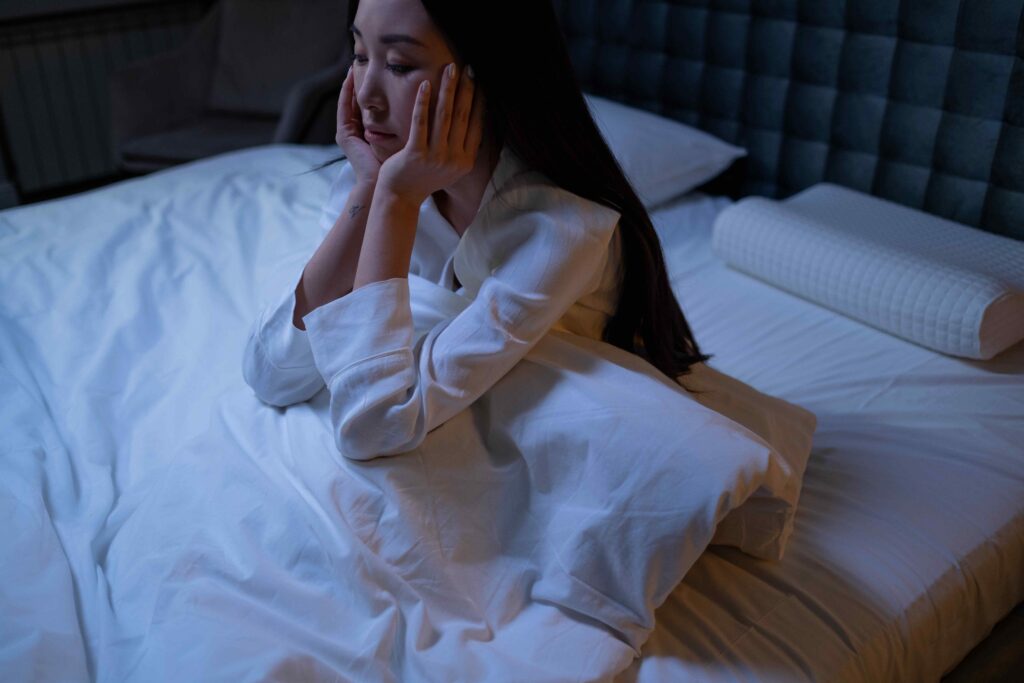
Health Conditions That Affect Your Sleep
There are many health conditions that can interfere with your sleep. Insomnia is a common sleep problem that many people face. If you're having trouble sleeping, sleep medicine may help you sleep better. One way to sleep better is to establish a sleep hygiene routine, such as going to bed and waking up at the same time every day or avoiding screens an hour before bedtime.
Additionally, sleeping on your back may also help you sleep more soundly. If you're struggling with why can't I sleep, it's important to talk to your doctor to find the underlying cause. Certain medical conditions, such as sleep apnea or restless leg syndrome, can significantly impact your sleep quality.
Anxiety and depression can also interfere with your sleep, so seeking treatment for these conditions may help. Making lifestyle changes, such as reducing caffeine intake, increasing physical activity, or practicing relaxation techniques, may also help you sleep better. Ultimately, tackling any health condition that affects your sleep is crucial for getting back to a restful night's sleep.
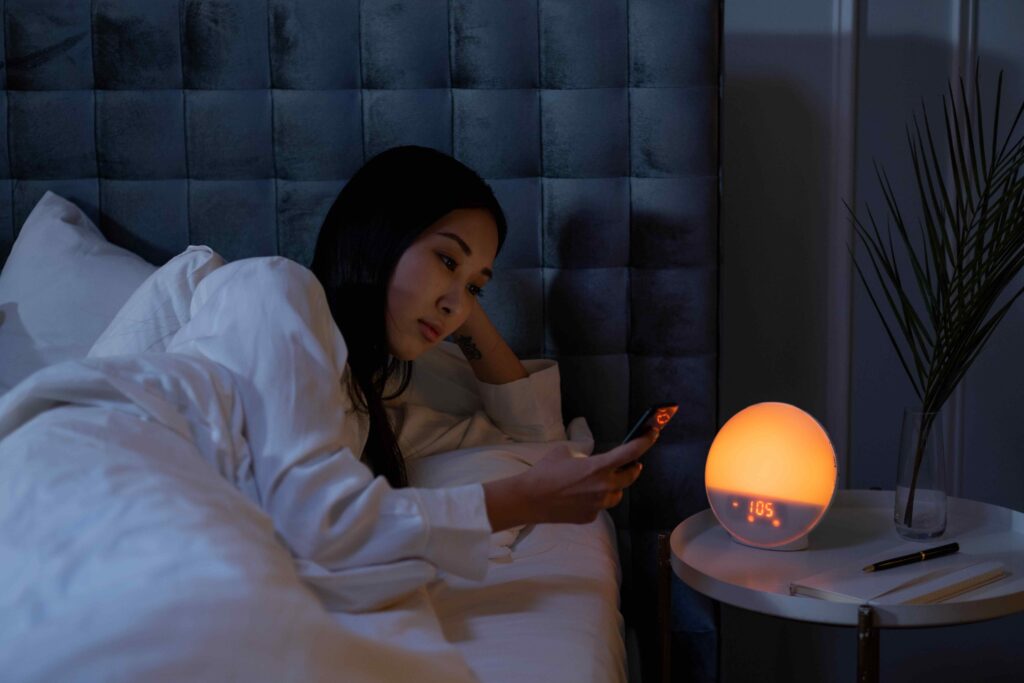
Signs & Symptoms of Insomnia
One of the most common sleep disorders is insomnia, which affects millions of people around the world. Insomnia can be caused by various factors, including stress, anxiety, depression, medications, and medical conditions. Some signs and symptoms of insomnia include difficulty falling asleep or staying asleep through the night, waking up too early in the morning, feeling tired or fatigued during the day, having trouble concentrating or remembering things.
Insomnia can also cause physical symptoms such as headaches, stomach problems, and muscle aches. In addition to these symptoms, people with insomnia may experience irritability or mood swings due to lack of sleep. Chronic insomnia can have long-term effects on a person's health and well-being if left untreated.
If you are experiencing any of these signs and symptoms of insomnia regularly for more than a few weeks or if they are affecting your daily life activities it is important to seek help from your healthcare provider who can provide appropriate treatment options like cognitive-behavioral therapy(CBT) or medications depending upon severity.
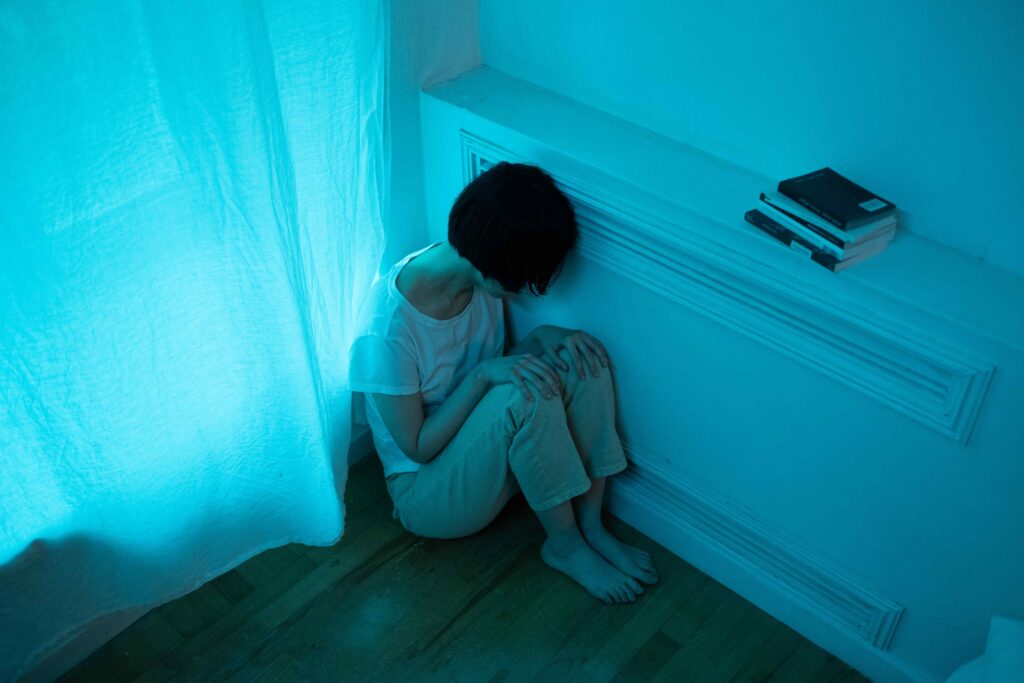
Difficulty Getting To Sleep At Bedtime
Difficulty getting to sleep at bedtime is a common issue that many people face on a regular basis. This sleep problem is known as Insomnia and can be caused by various factors such as stress, anxiety, depression or an uncomfortable bed. Creating a comfortable sleep environment can greatly reduce trouble sleeping.
This includes maintaining a cool temperature, reducing noise and ensuring proper lighting conditions in the room. However, sometimes these measures are not enough and people turn to sleep medicine to help them get back to sleep. It's important to consider the side effects of sleep medicine and only use them under the guidance of a healthcare professional.
Simple practices like practicing relaxation techniques and avoiding bright screens before bedtime can often do wonders in helping you get a good night's sleep. Overthinking and constantly asking yourself ‘why can't I sleep?' can make things worse. Instead, try to focus on maintaining a consistent sleep routine and ensuring that your bed is of high quality and comfortable. Ultimately, with a little effort and patience, most people can overcome bedtime difficulties and enjoy a sound and healthy sleep.

Treatment Options Help With Insomnia
Treatment options for sleep disorders depend on the type and severity of the condition. For mild cases, lifestyle changes such as sticking to a regular sleep schedule, avoiding caffeine and alcohol before bedtime, and creating a relaxing bedtime routine may be enough to improve sleep quality. Over-the-counter medications like melatonin or antihistamines can also be effective in promoting drowsiness.
For more severe cases, prescription medication may be necessary. These can include benzodiazepines or non-benzodiazepine hypnotics which help induce sleep, but can lead to dependency if used long-term. Cognitive behavioral therapy (CBT) is another option that aims to address the underlying psychological factors contributing to insomnia through techniques such as relaxation training and cognitive restructuring.
Ultimately, it's important to identify the root cause of your sleep disorder with the help of a healthcare professional in order to determine which treatment option is best for you.

Lifestyle Changes to Help Sleep
Poor sleep is a common problem among people worldwide, with about one-third of adults reporting that they do not get enough sleep. It can be caused by various factors including anxiety, stress, medical conditions, and lifestyle habits. However, making certain lifestyle changes can help improve the quality and duration of your sleep.
One effective way to improve your sleep is by establishing a consistent bedtime routine. This means going to bed at the same time every night and waking up at the same time every morning regardless of whether it's a weekday or weekend. Additionally, practicing relaxation techniques such as deep breathing exercises or yoga before bed can help calm your mind and promote better sleep.
Another important factor that affects sleep quality is diet. Avoid consuming caffeine or alcohol before bedtime as these substances can interrupt your natural sleeping patterns. Instead, try eating foods rich in magnesium like nuts or whole grains as they are known to promote restful sleep. Making these simple lifestyle changes can go a long way in helping you achieve better quality sleep which ultimately contributes to overall health and well-being.
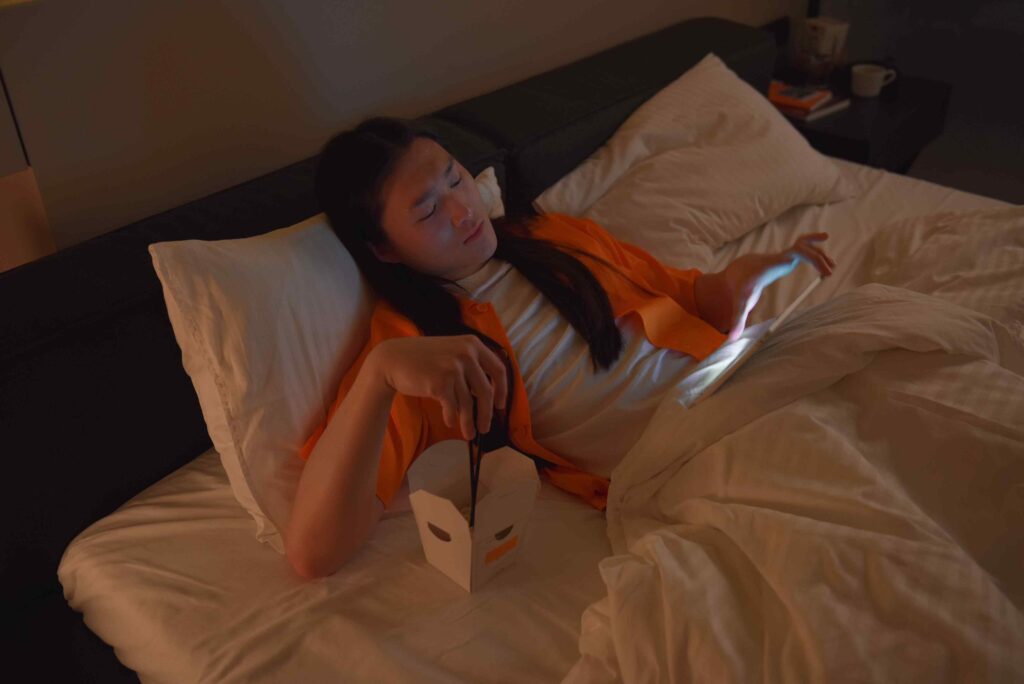
Coping with Stress & Anxiety To Improve Sleep Habits
Coping with stress and anxiety is crucial for maintaining good physical and mental health. One of the most common symptoms of stress and anxiety is difficulty sleeping. When we are stressed or anxious, our minds become overly active, making it hard to fall asleep or stay asleep throughout the night. This can result in daytime fatigue, irritability, and a lack of concentration.
If you're struggling with sleeplessness due to stress or anxiety, there are several things you can try to improve your situation. First, establish a regular sleep routine by going to bed at the same time each night and waking up at the same time each morning. Avoid stimulating activities before bedtime such as using electronic devices or watching TV. Instead, engage in calming activities like reading a book or taking a warm bath.
Another strategy for coping with stress and anxiety-induced insomnia is practicing relaxation techniques such as meditation or deep breathing exercises before bed. These techniques can help quiet your mind and reduce feelings of tension in your body, allowing you to fall asleep more easily. Additionally, consider talking to a mental health professional who can provide additional resources for managing your stress levels effectively.
How To Fall Asleep And Stay Asleep By The Sleep Doctor
The Sleep Doctor, Michael Breus, offers helpful advice on how to fall asleep and stay asleep through the night. Many people suffer from insomnia or other sleep problems, which can lead to a variety of negative effects on one's health and daily life. To combat this issue, creating a suitable sleep environment is key. This could include setting a comfortable temperature, eliminating distractions like noise and light, and using comfortable bedding.
If you are experiencing trouble sleeping, it may be helpful to adhere to a strict sleep schedule, avoiding naps throughout the day and ensuring that you wake up at the same time each morning. Additionally, engaging in relaxing activities before bed, like taking a warm bath or reading a book, can help prepare your mind and body for rest.
It is important to address the underlying factors that cause sleeplessness and “why can't I sleep?” questions by consulting with a healthcare professional. Implementing these techniques and seeking further medical attention if necessary can greatly enhance the quality of your sleep and overall well-being.
Conclusion: Get a Better Night's Rest
If you're struggling to get a good night's sleep, you're not alone. There are many reasons why people find it difficult to fall asleep or stay asleep throughout the night. Some of the most common causes include stress, anxiety, caffeine consumption, irregular sleep schedules, and medical conditions like insomnia or sleep apnea.
One way to improve your chances of getting a better night's rest is by establishing a bedtime routine that helps relax your mind and body. This might involve activities like taking a warm bath, reading a book or practicing relaxation techniques like yoga or meditation. You can also make changes to your sleeping environment by investing in comfortable bedding and pillows, keeping the room cool and dark, and minimizing noise levels.
Ultimately, finding what works best for you may take some trial and error. However with patience and perseverance in implementing healthy habits into your lifestyle routine,you can be sure that it will lead to better quality sleep which can translate significantly on overall well-being for years to come!
Related Articles
Hopkins Medicine Why Cant I Sleep 6 Surprising Factors
https://www.hopkinsmedicine.org/health/wellness-and-prevention/why-cant-i-sleep-6-surprising-factors
Well Mind Why Cant I Sleep? Reasons For Not Sleeping Well And How To Fix It
https://www.verywellmind.com/reasons-for-not-sleeping-well-and-how-to-fix-350760
Natures Best Why Cant I Sleep 6 Reasons You're Tired But Cant Sleep
Magazine UCSF Why Cant I Sleep?
https://magazine.ucsf.edu/why-cant-i-sleep
Womens Health Mag Why Cant I Sleep?
https://www.womenshealthmag.com/uk/health/sleep/a27076207/cant-sleep/
Rise Science Why Cant I Sleep Even Though Im Tired
https://www.risescience.com/blog/why-cant-i-sleep-even-though-im-tired
Wiki How Why Cant I Sleep Quiz
https://www.wikihow.com/Why-Can%27t-I-Sleep-Quiz
YouTube Why Cant I Sleep?
https://www.youtube.com/watch?v=rJ2mkv5GJhc
Medicine Net Why Cant I Sleep?
https://www.medicinenet.com/why_cant_i_sleep_by_myself/article.htm
Health Span Why Cant I Sleep? How To Deal With Insomnia
https://www.healthspan.co.uk/advice/why-cant-i-sleep-how-to-deal-with-insomnia
Hello Better Why Cant I Sleep?
https://hellobetter.de/en/blog/why-cant-i-sleep/
On Stella Why Cant I Sleep?
https://www.onstella.com/the-latest/sleep/i-cant-sleep-anymore-is-menopause-the-reason/
Nerd Momma Why Does My Back Hurt?
https://nerdmomma.com/why-does-my-back-hurt-9-lower-back-pain-facts/#more-2975
Nerd Momma Why Is Yawning Contagious?
https://nerdmomma.com/why-is-yawning-contagious-8-contagious-yawning-facts/#more-2931
